Can You Donate Blood While Breastfeeding? Rules, Risks & Advice

- When Is the Best Time to Donate Blood for a Breastfeeding Woman?
- Things to Consider Before Donating Blood While Breastfeeding
- FAQs
Donating blood is a generous act that saves lives, but for new mothers, the decision to give blood while breastfeeding often comes with questions and concerns. Is it safe for both mother and baby? Will it affect milk supply or nutritional quality? The short answer is yes, it is generally safe to donate blood while breastfeeding, provided certain conditions are met. It’s important to consult a doctor beforehand and undergo a blood test to rule out anaemia or any other blood disorders. With your donation, you have the power to make a life-changing impact. It’s a small act of kindness that can make a big difference in someone’s life. In this article, we’ll learn the facts, safety tips, and things to consider before giving blood while breastfeeding.
When Is the Best Time to Donate Blood for a Breastfeeding Woman?
Donating blood is undoubtedly a very noble initiative taken by an individual. However, we should refrain from being impulsive and consider the points listed below before making a move.
- It is advisable for nursing mothers to donate blood only after nine months from the date of delivery since delivery and breastfeeding causes a lot of fatigue in mothers (1).
- If you have not had any immunisation within the past one month, you may donate blood.
- You may donate blood if you have not had any minor dental work in 24 hours and major dental work in a month’s time.
- It is advisable not to donate blood even if you have taken an aspirin in 72 hours.
- It is advisable to donate blood only if you have not undergone a blood transfusion during delivery.
- If the last time she donated blood was more than three months ago, you may consider donating blood.
- Lastly, a nursing mother should donate blood only when she feels comfortable about it.
- Breastmilk is made from the mother’s blood. So any donated blood will temporarily have a dip in supply. If the mother has a history of low supply or a thyroid problem, she should definitely not donate blood.
Things to Consider Before Donating Blood While Breastfeeding
Blood donation and breastfeeding are both possible at the same time, but certain precautions should be taken to ensure the health of both mother and baby. Here are a few tips to remember about donating blood when breastfeeding.
1. Stay Hydrated
Breast milk comprises 87% water and when you donate blood it takes away 15-16 ounces of water from your body. Therefore it is imperative that after donating blood, the donor should take as much fluid as possible in the next 48 hours to keep the body hydrated and replace the fluid that has been drawn out. The donor should also drink a lot of water in the 24 hours prior to donating blood (2).
2. Keep Your Iron Levels Normal
Breastfeeding mothers should eat iron-rich food for several weeks before donating blood to have a normal iron level while donating blood. In case the donor suffers from low levels of iron, she may suffer from weakness after donating blood. Iron-rich food includes spinach, fish, chicken, whole grains and eggs (3). Do not forget to take fruits rich in vitamin c like orange, tangerines, grapes, plums, cherries for better absorption of iron.
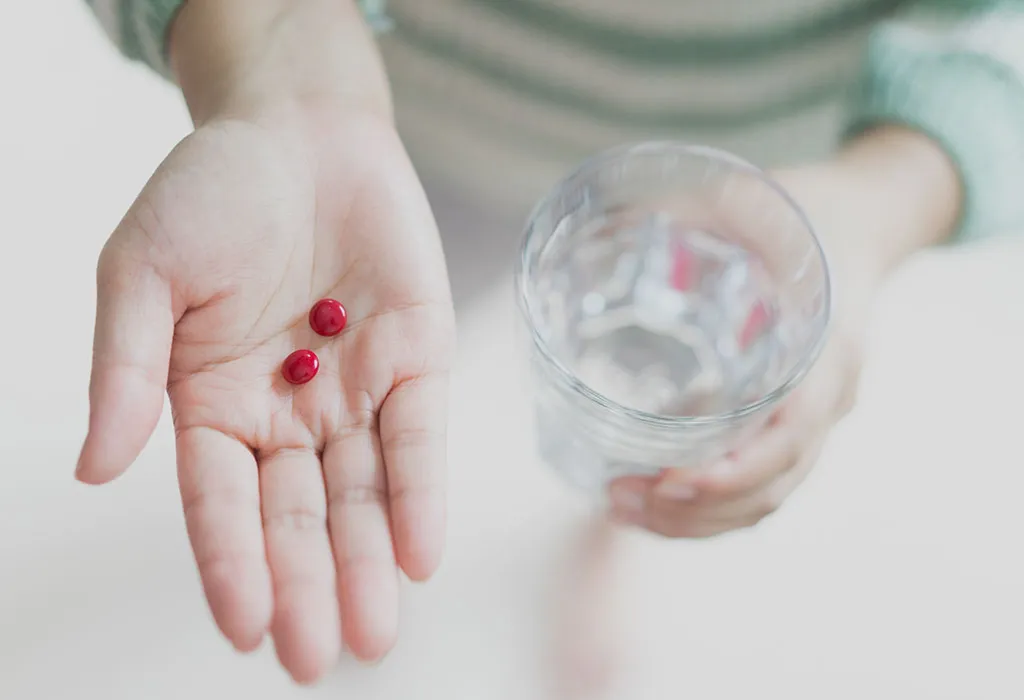
3. Reconsider Blood Donation If You Have a Low Supply of Milk
It is a known fact that when an individual donates blood, she loses about 15-16 ounces of water from her body; breast milk is three-fourths water. Therefore, if a nursing mother with low milk supply loses that much of fluid from her body, she may have a further decrease in her milk supply. However, many do not agree with this.
4. Eat a Good Meal Before and After Donating Blood
Breastfeeding a baby takes up 500 calories a day and donating blood also takes up quite a bit of your energy. Therefore eating a substantial meal with plenty of proteins and iron-rich food will keep you in good stead (4). However, one should eat 1-2 hours before donating blood but do not eat a full stomach.

5. Rest
Let your mommy duties take a back-seat after donating blood. Take a good nap to restore back all the energy. After your body feels rested, it will do the needful to make up for all the blood that you have donated and a relaxed body will up your supply of breast milk. A good sleep of 7-8 hours in the night prior to the donation.
6. Check Your Haemoglobin Level
Before donating blood, make sure your haemoglobin level is within the healthy range of 12-16% (5). Low haemoglobin can be a sign of anaemia, which may affect both your health and your baby’s.
7. Normal Blood Pressure Is Important
Your blood pressure should be stable and within the normal range. High or low blood pressure can make blood donation risky (6).
8. Keep an Eye on Heart and Pulse Rate
Your heart rate and pulse should be normal. Irregular heartbeat or a very high/low pulse rate may indicate that your body is not ready for blood donation.
9. Maintain Normal Body Temperature
Your body temperature should be within the normal range, 96.2 to 97°F (35.7 to 36.1°C), and your oral temperature should not go over 37.5°C. A fever or high temperature may suggest an infection (7).
10. Drink Water Before Donating
It’s important to drink at least half a litre of water before donating blood. Staying hydrated helps prevent a drop in blood pressure, which can lead to dizziness or fainting.
11. Avoid Heavy Exercise
Avoid doing vigorous exercises right before or after donating blood. Your body needs time to adjust and recover.
12. Skip Fatty Foods
Try not to eat fatty foods at least 24 hours before donating. Fat in your blood can affect test results and may even make the donation unusable.
13. Stay Calm and Relax
Feeling nervous is normal, but try to stay relaxed while your blood is being drawn. You can listen to music, talk to someone, or even sing softly, whatever helps you feel calm and comfortable (8).
FAQs
1. How often can a breastfeeding mother donate blood?
The general guideline is to wait at least 3 months between donations. Breastfeeding mothers should be extra careful and listen to their bodies, donate only when fully recovered and well-nourished.
2. Do all blood donation centres allow breastfeeding mothers to donate?
Not always. Some centres may have different guidelines, so it’s a good idea to call ahead and confirm their policy before making an appointment.
3. Is there a specific time of day that’s better for donating blood while breastfeeding?
There’s no strict rule, but many find it helpful to donate earlier in the day when they feel more energised and can rest afterward if needed.
Donating blood while nursing your baby is definitely inspiring; however, do it only after consulting your doctor and getting a health check. If your health does not permit, do not fret over it but wait for the right time. After all, you do not want a noble deed like blood donation to be a bad experience for you.
References/Resources:
1. World Health Organization – Who can give blood?
2. U.S. Department of Health and Human Services – The Donation Process, Step-by-Step
3. NHS – Preparing to give blood
4. Nemours KidsHealth – Breastfeeding vs. Formula Feeding
5. The American National Red Cross – What Donors Should Know About Iron and Blood Donation
6. The American National Red Cross – High Blood Pressure Information for Blood Donors
8. The American National Red Cross – What to Do Before, During and After Your Donation
Also Read:
Detox While Breastfeeding
Breast Milk Production Process
How to Pump & Store Breast Milk?
Breast Milk Colour – What’s Normal, What’s Not
How to Avoid Caffeine During Breastfeeding
Was This Article Helpful?
Parenting is a huge responsibility, for you as a caregiver, but also for us as a parenting content platform. We understand that and take our responsibility of creating credible content seriously. FirstCry Parenting articles are written and published only after extensive research using factually sound references to deliver quality content that is accurate, validated by experts, and completely reliable. To understand how we go about creating content that is credible, read our editorial policy here.







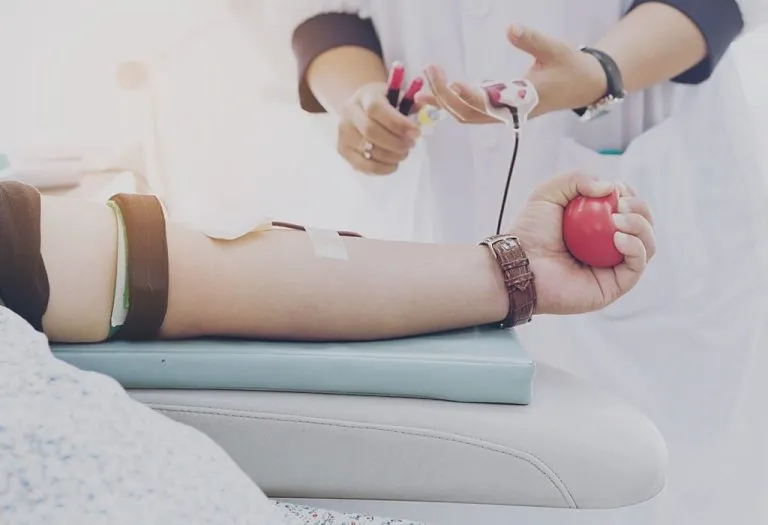
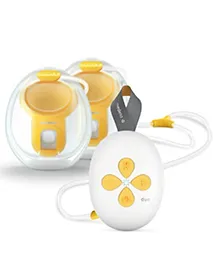

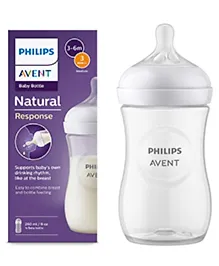
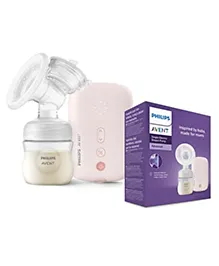
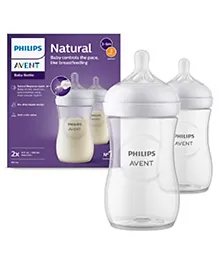

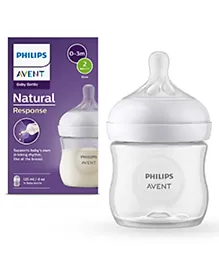

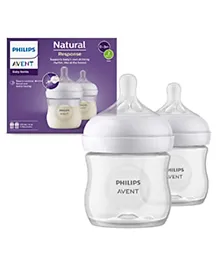
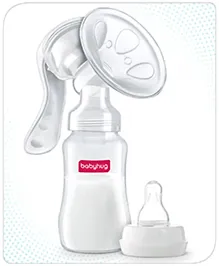







.svg)


















